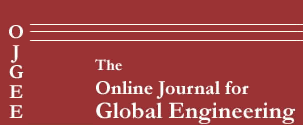Abstract
Engineering programs must prepare students for a global engineering profession. In global markets, processes as well as products can be outsourced. Highly technical engineering work may be completed by large and diverse collaborations. Engineering students need to have foundational work in languages, cultural differences, and strategies for working with diverse colleagues. Historically only about 3% to 4% of engineering students pursue study abroad opportunities. Clearly, new and innovative programs must be devised to build "global competency" in undergraduate engineers. In working toward that end, the authors suggest that interdisciplinary collaborations between departments of foreign language and schools of engineering can be highly productive. To illustrate the benefits of such collaborations and to share the results of recent program assessments, this case study presents a conceptual model useful in program design and describes the evolution of a particularly intensive and effective program in "global competency" for undergraduate engineers.
Recommended Citation
Allert, Beate I.; Atkinson, Dianne L.; Groll, Eckhard A.; and Hirleman, E. Dan
(2007)
"Making the Case for Global Engineering: Building Foreign Language Collaborations for Designing, Implementing, and Assessing Programs ,"
Online Journal for Global Engineering Education:
Vol. 2:
Iss.
2, Article 1.
Available at:
